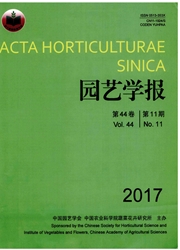

 中文摘要:
中文摘要:
根结线虫(Meloidogyne spp.)与植物的互作,包括一系列的分子信号识别、调节及表达。在感病寄主中,根结线虫通过分泌独特的食道腺分泌物来改变寄主植物基因的正常表达,刺激植物根尖细胞形成高度专化的巨型细胞,以满足自身生长和繁殖的需要;在抗性植物中,根结线虫能够引发植物抗性反应,使植物抵抗线虫进一步侵染、转移或是防止其建立寄生关系。线虫的分泌物和寄主防御基因的表达产物在信号识别中起着重要的作用,这种分子互作决定着寄主植物的抗、感性,对于抗线虫育种和防治根结线虫具有重要的意义。根结线虫侵染早期植物的分子表达、线虫诱导的根部特异表达转录启动子,以及线虫毒性基因与非毒性基因等方面将成为线虫与植物互作的研究方向。
 英文摘要:
英文摘要:
Root-knot nematodes (Meloidogyne spp. ) are obligate, sedentary endoparasites nematodes. The interaction between root-knot nematodes and plants is complex, which involved a series of molecular signs identification, regulation and genes expression. In susceptible host, following infection of the host root, Rootknot nematode modifies one or more plant cells, which causes their re-differentiation into a specialized feeding site that supports development of a sedentary, feeding and reproductively competent female. Root knot nematodes form giant cells by inducing plant cell mitosis without concomitant cytokinesis. In resistance host, Rootknot nematode triggers plant resistance responses to defense the nematodes invading, migrating or interfering with forms of feeding site. Some resistant-nematode genes have been cloned. It is generally accepted that the secretions of Root-knot nematodes are key in the molecular interaction between Root-knot nematodes and plants. The interaction results in the host resistance or susceptibility. The research on the early molecular express in resistant host induced by nematode, the special transcript promoters in the root and the virulent/avirulent genes et al will become a hot field.
 同期刊论文项目
同期刊论文项目
 同项目期刊论文
同项目期刊论文
 期刊信息
期刊信息
